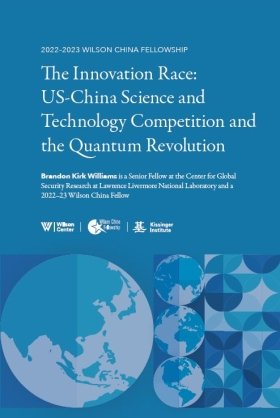The Innovation Race: US-China Science and Technology Competition and the Quantum Revolution


Technology competition is the fundamental driver of long-term US-China strategic competition. Technology racing will define the bilateral rivalry over the coming decades, and it is an innovation marathon that American policymakers must navigate to preserve the United States’ security and economic competitiveness. After taking power in 2012, Xi Jinping launched a determined campaign to shift the vital center of science and technology (S&T) from the United States to China by pioneering emerging technologies such as quantum. Quantum technologies offer revolutionary potential to upend the geopolitical balance of power. Chinese champions are shifting away from deep investments in quantum communication to keep pace with American progress in quantum computing and sensing. In the next decade, quantum technologies will enter a new stage of maturity that will have the potential to disrupt economies and security. There is no certainty that the United States will retain its historic innovation leadership in quantum, nor that China will best the United States. The nation that best harmonizes its domestic innovation system will determine the course of the twenty-first century’s economic and security order.
Author

Postdoctoral Research Fellow at the Center for Global Security Research at Lawrence Livermore National Laboratory

Kissinger Institute on China and the United States
The Kissinger Institute works to ensure that China policy serves American long-term interests and is founded in understanding of historical and cultural factors in bilateral relations and in accurate assessment of the aspirations of China’s government and people. Read more

Explore More
Browse Insights & Analysis
US Inaction Is Ceding the Global Nuclear Market to China and Russia

360° View of How Southeast Asia Can Attract More FDI in Chips and AI

